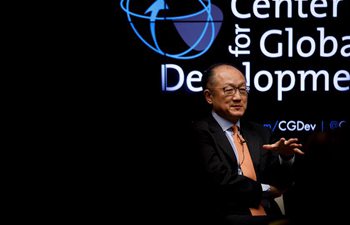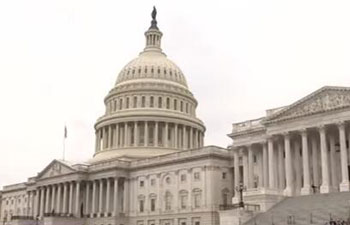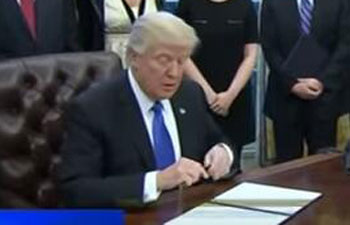by Chris Dalby
MEXICO CITY, Feb. 8 (Xinhua) -- While U.S. Secretary of State Rex Tillerson has now returned to Washington, his recent tour of five Latin American countries has left behind plenty of speaking points.
Starting off his trip with veiled jabs at China and Venezuela, Tillerson touted the controversial 200-year-old Monroe Doctrine.
Before he left, Tillerson struck a confrontational tone on Feb. 1, saying that "China is getting a foothold in Latin America. It is using economic statecraft to pull the region into its orbit."
Shortly after, in Mexico, Tillerson added that "the United States will use all its political, diplomatic and economic tools to confront the situation in Venezuela."
Cuba's Foreign Ministry warned of "the seriousness of the message of arrogance and contempt with which the U.S. Secretary of State began a tour of several countries in Latin America and the Caribbean."
It lambasted Tillerson for making "alarming interventionist statements that openly instigate the overthrow, by any means, of the legitimate government of Venezuela."
"His statements are clearly in line with the regime change schemes that have claimed the lives of millions of innocent victims in various parts of the world and promoted violence, war, humanitarian crises and instability," said the ministry.
However, Tillerson had not merely targeted Caracas. "In the history of Venezuela and South American countries, it is often times that the military is the agent of change when things are so bad and the leadership can no longer serve the people," he added.
This led to a prompt dismissal by Venezuela's Defense Minister Vladimir Padrino.
"Members of the armed forces radically reject such deplorable remarks that constitute a vile act of interference... When you invite the armed forces to overthrow the government, you're showing a lack of respect," said the general.
"Many countries in the world have suffered from the long history of covert, clandestine operations, propaganda war, economic blockades and direct military interventions by the government of the United States of America," Padrino said.
Even in Peru, where he could have expected a far friendlier response, Tillerson found a measure of diplomatic rejection of his comments.
Peru's Foreign Trade and Tourism Minister Eduardo Ferreyros said that Tillerson's doubts about China were deflected.
"China is a good trade partner," said Ferreyros. "We're happy with the results of the trade agreement."
Answering Tillerson's comments about "imperialism" and trade practices, Ferreyros said "I appreciate advice, no matter where it comes from. But we're careful with all of our trade relations."
While Tillerson was not so dismissive of traditional American allies, he met skepticism there as well. The feeling in the Caribbean island of Jamaica was one of cautious optimism but there was no desire to be lectured to.
Former Prime Minister of Jamaica P. J. Patterson said that the United States should not expect unwavering loyalty from Jamaica and that the island was strongest when it stood firm.
"We (Jamaica) have never reaped any substantial or lasting benefits from grovelling or genuflection. We have won when Jamaica has united to pursue a common cause by providing leadership at the political, diplomatic and technical levels of the Caribbean Community, the Organization of American States, the UN, the Non-Aligned Movement, and the Commonwealth," said Patterson in a public speech.
In Mexico, the first leg of the trip, Tillerson found an engaging audience by reassuring the country on the North American Free Trade Agreement and immigration, while still defending U.S. President Donald Trump's policy.
Mexican Foreign Minister Luis Videgaray said that "the leadership of Secretary Tillerson has been instrumental to achieving this to bringing the countries closer."
It was perhaps ultimately only Colombia, neighbor to Venezuela and receiving many thousands of immigrants from that country, where Tillerson found the support he had been expecting.
Colombian President Juan Manuel Santos sided with Tillerson on the Venezuelan presidential elections, set for next April.
"We now have the summoning of presidential elections, elections that, in our view, are not valid because they offer no guarantees whatsoever, none, and will not offer any guarantees," said Santos.
Although this showed some conciliation, Tillerson's trip proved that while the United States may find common ground with certain Latin American countries, the game has changed. The region is far more willing to stand up for itself than before, even to its big brother in Washington.













